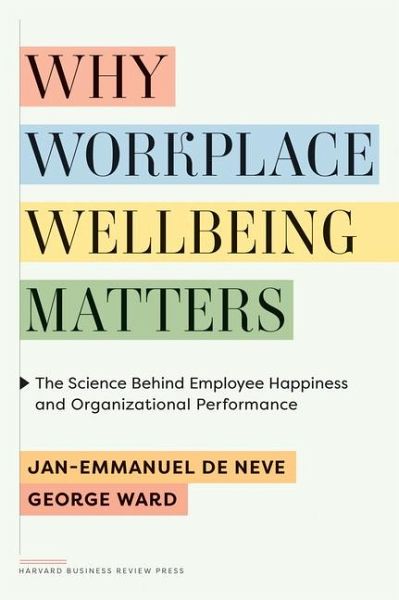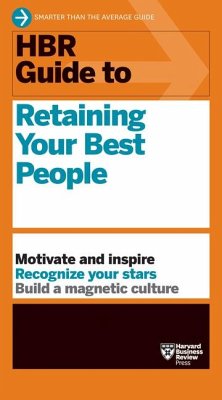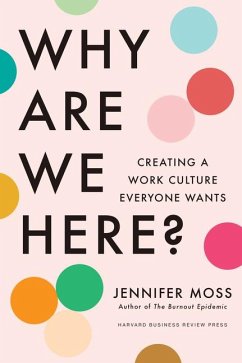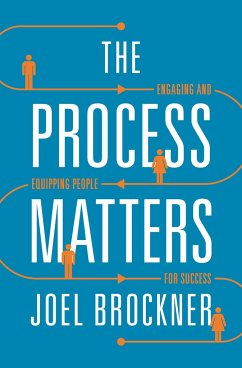
Why Workplace Wellbeing Matters
The Science Behind Employee Happiness and Organizational Performance

PAYBACK Punkte
11 °P sammeln!
The definitive account of workplace wellbeing and its key drivers, offering a fresh, data-driven perspective on the connections between happiness, productivity, and organizational success.Most of us spend a third of our waking lives at work. Work shapes our schedules, relationships, identities, and economies-but is it actually making us happy? This crucial question is explored in depth by leading Oxford researchers Jan-Emmanuel De Neve and George Ward, who provide the richest, most comprehensive picture of workplace wellbeing yet.In Why Workplace Wellbeing Matters, the authors clarify what wor...
The definitive account of workplace wellbeing and its key drivers, offering a fresh, data-driven perspective on the connections between happiness, productivity, and organizational success.
Most of us spend a third of our waking lives at work. Work shapes our schedules, relationships, identities, and economies-but is it actually making us happy? This crucial question is explored in depth by leading Oxford researchers Jan-Emmanuel De Neve and George Ward, who provide the richest, most comprehensive picture of workplace wellbeing yet.
In Why Workplace Wellbeing Matters, the authors clarify what workplace wellbeing is (and is not) and offer a framework for how businesses can approach and improve it. Drawing on extensive large-scale data-including the world's largest data set on employee wellbeing, gathered in partnership with the jobs platform Indeed-the book reveals the remarkable ways in which wellbeing at work varies across workers, occupations, companies, and industries.
The authors present new, evidence-based insights into the origins of workplace wellbeing and how businesses can enhance the employee experience. Integrating work from multiple academic disciplines, they show that workplace wellbeing encompasses both how we think about our work as a whole and how we feel while doing it. Their research demonstrates that improving wellbeing can boost productivity, aid in talent retention and recruitment, and ultimately improve financial performance.
With in-depth analysis and keen insight, De Neve and Ward debunk myths and test assumptions amid an often confusing cacophony of voices on wellbeing at work. Why Workplace Wellbeing Matters provides a firm foundation and indispensable resource for leaders seeking to shape the future of work.
Most of us spend a third of our waking lives at work. Work shapes our schedules, relationships, identities, and economies-but is it actually making us happy? This crucial question is explored in depth by leading Oxford researchers Jan-Emmanuel De Neve and George Ward, who provide the richest, most comprehensive picture of workplace wellbeing yet.
In Why Workplace Wellbeing Matters, the authors clarify what workplace wellbeing is (and is not) and offer a framework for how businesses can approach and improve it. Drawing on extensive large-scale data-including the world's largest data set on employee wellbeing, gathered in partnership with the jobs platform Indeed-the book reveals the remarkable ways in which wellbeing at work varies across workers, occupations, companies, and industries.
The authors present new, evidence-based insights into the origins of workplace wellbeing and how businesses can enhance the employee experience. Integrating work from multiple academic disciplines, they show that workplace wellbeing encompasses both how we think about our work as a whole and how we feel while doing it. Their research demonstrates that improving wellbeing can boost productivity, aid in talent retention and recruitment, and ultimately improve financial performance.
With in-depth analysis and keen insight, De Neve and Ward debunk myths and test assumptions amid an often confusing cacophony of voices on wellbeing at work. Why Workplace Wellbeing Matters provides a firm foundation and indispensable resource for leaders seeking to shape the future of work.













